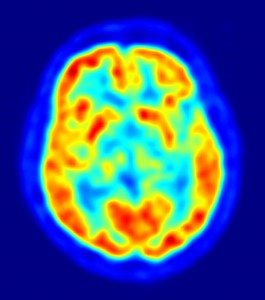In his October 8 New York Times op-ed column, David Brooks offered his assessment of the character of Facebook founder Mark Zuckerberg in the movie The Social Network: “It’s not that he’s a bad person. He’s just never been house-trained. He’s been raised in a culture reticent to talk about social and moral conduct.”
This diagnosis of cultural permissiveness is consistent with Brooks’s conservative philosophy. But not only is his definition of a generation a dubious extrapolation from the actions of one decidedly idiosyncratic individual, it overlooks a more tangible, more immediate cause for that individual’s success through self-immolation: He’s wired that way. The Zuckerberg character displays the three classic symptoms of someone who falls on the autism spectrum. He lacks social skills. He has trouble with empathy. He finds his greatest fulfillment in restricted behavior.
I know nothing about Zuckerberg’s background—neither the character’s, which the movie elides, nor the real person’s. I don’t know how the real Zuckerberg was “trained,” whether by his parents, his schools, or his “culture.” But I do know that the training of the onscreen Zuckerberg would have had to somehow accommodate a brain that was hard-wired not to see facial and gestural cues that most of us easily assimilate, not to understand why his girlfriend would feel insulted when he dismisses her college as intellectually inferior, not to find his greatest fulfillment in a personal relationship but in writing code.
“He becomes a global business star,” Brooks writes, “without getting a first-grade education in interaction.” In fact, many first-graders today are familiar enough with Asperger syndrome that they would know why some kids at school don’t behave the same as the other kids. And many adults today would know enough about Asperger’s to wonder if it seems more prevalent in “geeky” places like Harvard and Silicon Valley not because those places have looser social and moral standards but because people who love writing code, for example, can prosper there.
It’s not that Brooks is a bad person. It’s just that he has become a global op-ed star without, apparently, getting a first-grade education in nurture and nature.

I think that in places like Silicon Valley, it’s not only that people with Asperger’s are drawn there because they can prosper, but that there’s a strong genetic component with ASDs. People with Asperger’s who’ve settled there, partnered, and had children are more likely to be raising kids with Asperger’s.
I’ve wondered about the link between Asperger’s and evolution – the way people communicate with one another has changed so radically in the last 100 years. Could it be that our brains are adjusting?
The character also “doesn’t do hugs” — reminiscent of the sensory sensitivities of people with autism.